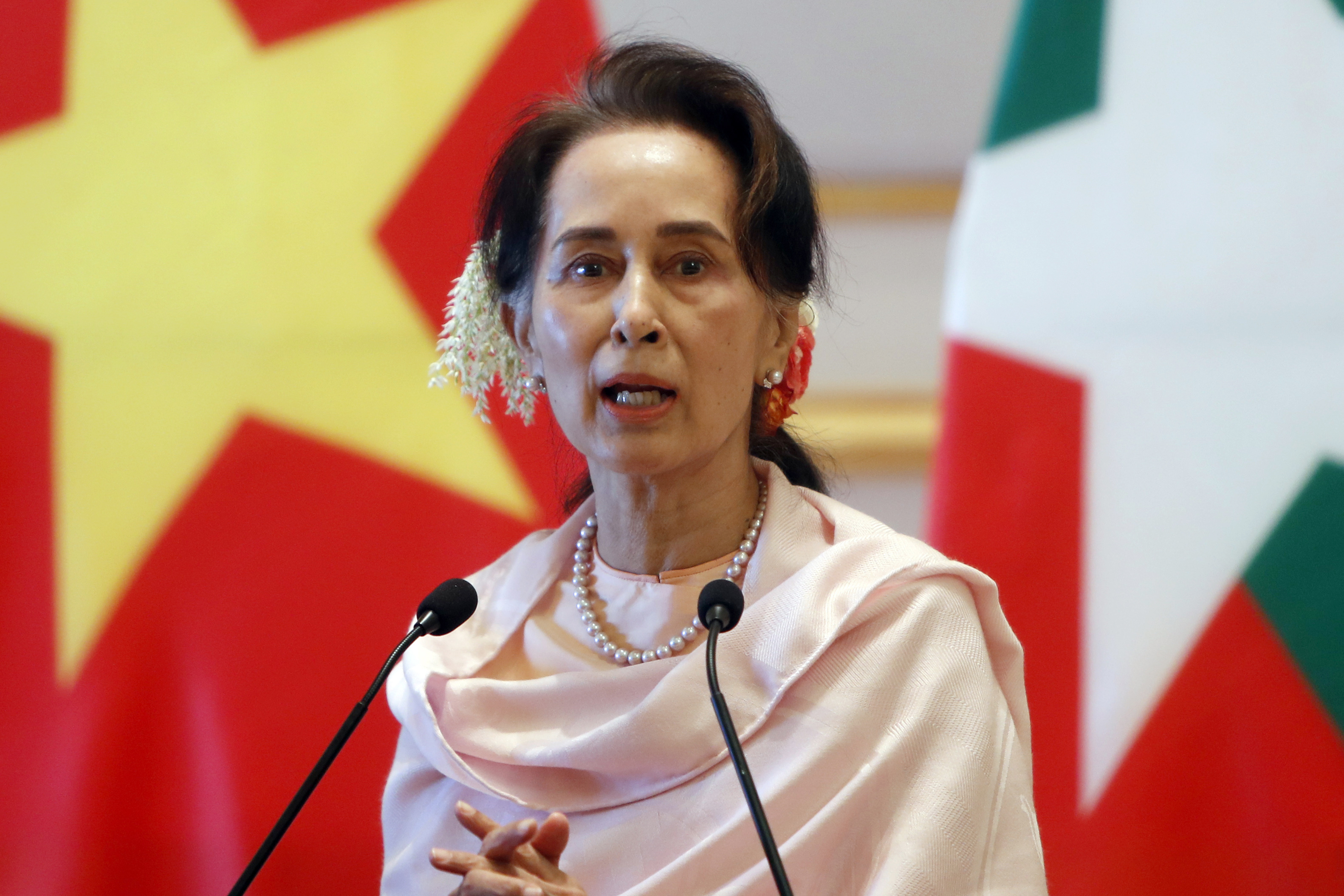The Hague Just Ordered Myanmar to Protect Rohingya Muslims From Genocide

Credit to Author: David Gilbert| Date: Thu, 23 Jan 2020 15:16:47 +0000
Want the best of VICE News straight to your inbox? Sign up here.
The U.N.’s top court has issued a damning indictment of former Nobel Peace Prize winner Aung San Suu Kyi and ordered that her Myanmar government take all possible measures to prevent genocide against the Rohingya people.
The ruling from the International Court of Justice in The Hague, delivered on Thursday morning, was warmly welcomed by Rohingya Muslims and human rights activists who have long called for the international community to condemn the atrocities perpetrated against the minority group and hold the Myanmar military to account.
“Today’s decision sends a message to Myanmar’s senior officials: The world will not tolerate their atrocities and will not blindly accept their empty rhetoric on the reality in Rakhine State today,” Nicholas Bequelin, Amnesty International’s regional director, said in an emailed statement. “An estimated 600,000 Rohingya who remain there are routinely and systematically denied their most basic rights. They face a real risk of further atrocities.”
In 2017 the Myanmar military conducted a clearance operation in northern Rakhine State that led to hundreds of thousands of Rohingya Muslims fleeing to Bangladesh, and to accusations of mass killings, rapes, and torture.
In a bid to protect the Rohingya who remain in Myanmar, the ICJ demanded that the government ensure military and police forces do not commit genocidal acts, and that they preserve all evidence of genocidal acts.
Myanmar is required to report back to the court in four months to outline what steps it has taken to comply with the order, and it must continue to update the court every six months after that.
Aung San Suu Kyi was not in court on Thursday to hear the verdict, but Myanmar’s State Counselor and de facto head of state did travel to The Hague last month to defend the actions of the military that once held her under house arrest for 15 years.
And she continues to defend her military’s actions.
In an opinion piece published Thursday in the Financial Times, the Myanmar leader said her country was the victim of “unsubstantiated narratives” by human rights groups and U.N. investigators.
READ: Human rights icon Aung San Suu Kyi is in court defending claims of genocide in Myanmar
Earlier this week, a government-appointed committee published a report into the 2017 atrocities and it concluded that while some soldiers in Myanmar’s military committed war crimes, there was no genocide.
Amnesty’s Bequelin said the committee was “neither independent nor impartial and cannot be considered a credible effort to investigate these crimes.”
The genocide case was brought before the ICJ by The Gambia, which accused Myanmar of breaching its obligations under the U.N. Genocide Convention.
The African country claims that the Myanmar military committed atrocities against the Rohingya Muslims in Rakhine State in 2016 and 2017, during a clearing operation that saw thousands of Rohingya killed and more than 700,000 flee to Bangladesh.
READ: Myanmar's military is still committing war crimes against the Rohingya
During the hearing last month, lawyers for Myanmar’s accusers used maps, satellite images, and graphic photos to detail what they call a campaign of murder, rape, and destruction amounting to the genocide perpetrated by Myanmar’s military.
The court on Thursday also ordered that if Myanmar does not obey the ruling, the ICJ can send the case to the U.N. Security Council — although countries like China and Russia have already shown they continue to support Aung San Suu Kyi’s government.
“This is the first step on a path to justice for the Rohingya,” Simon Adams, executive director of the Global Centre for the Responsibility to Protect, said in a statement. “I hope that all members of the U.N. Security Council will uphold their moral and political obligation to ensure that the provisional measures ordered by the Court are fully implemented. Those responsible for genocide are still in power in Myanmar. Justice has been delayed but can no longer be denied.”
Cover: Myanmar's leader Aung San Suu Kyi speaks during a joint press conference with Vietnam's Prime Minister Nguyen Xuan Phuc after their meeting at the Presidential Palace in Naypyitaw, Myanmar, Tuesday, Dec. 17, 2019. (AP Photo/Aung Shine Oo)
This article originally appeared on VICE US.